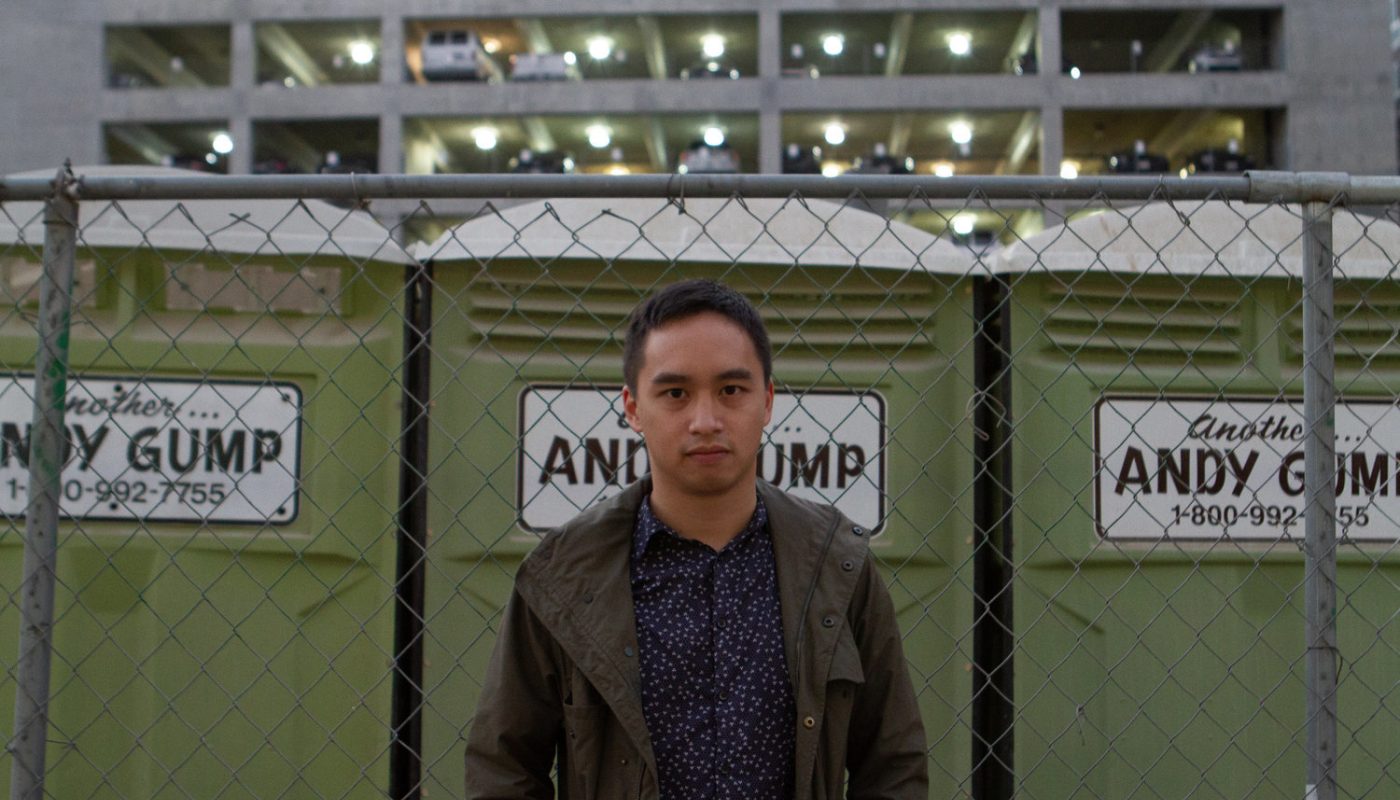

Richard Van - Challenges of Cultural Differences
How the struggles within family relationships make up for interesting stories to tell.
Geplaatst op 12 november 2019We have already introduced to our favorite readers one of the prize winners of the 22nd Cinefondation Selection at Cannes 2019 - Wisam Al Jafari. Let us get acquainted with more of this festival’s talented filmmakers. Today our main hero is Richard Van, an American director with Vietnamese roots who tells us about his favorite topic to make films about, namely the resolving of the difficulties in multicultural families, but also the work outside his community, idols which inspire him as well as the background of his award-winning short Hieu.
"Family is such a complicated thing. It's not like friendship, where people who are not working on the development of their relations could simply fade away. You're stuck with your family—for better or for worse.”
Work inside and outside of the community
Richard Van, American director with Vietnamese roots, was born in the United States. His parents emigrated there in the 70s after the Fall of Saigon (the event which marked the end of the Vietnam War). Being a so-called “Viet Kieu” (meaning a Vietnamese living overseas) in many ways gives Richard a foundation for new ideas for filmmaking: memories related to Vietnam, a community to make films about and unique family experiences. He says: “I don't just create movies within my community. I believe it's always nice to have a completely different cultural experience to make films about. For instance, in Audition, the film I produced before Hieu, I was working with an African-American cast.” Making films outside of one’s own community presents even more challenges, as not being familiar with that other community means having to do far more research in order to portray this way of life realistically. Either way, Richard Van tries his best to be as well-researched and "authentic" as possible in each of his projects, though he understands that there will always be some limitations and distinctions from reality.
Regarding the Vietnamese community, in Richard’s point of view, the Vietnamese language is very fun to work with. Being both, largely monosyllabic and tonal, dialogues have a different visceral feeling in comparison with English. Therefore, the director usually prefers not to include an English dubbing in his movies, instead he uses subtitles, striving to transmit the actual meaning as accurately as possible.
Richard’s background
Richard received an MFA in Film directing at the California Institute of the Arts as well as a B.A. in Philosophy at University of California, Berkeley. He thinks that majoring in philosophy changed the way he looks at things. It taught him not to take the most obvious facts as given and how to allege strong arguments. Apart from that he does not use much of his education in philosophy in his filmmaking. The director remembers: “One of my early films was a brain-in-the-vat (thought experiments intended to draw out certain features of human conceptions) science fiction drama, but that's the only one—at least for now!”
Richard believes that enrolling in CalArts was one of the best things he did for his directing career. It changed the way he looks at cinema and it introduced Richard to the wonderful people he plans making films with for the rest of his life. Film school was a great place to make experiments and take risks. Aside from fictional pieces that were shown at festivals, Richard also made a good number of documentary projects that led to an expansion of the topics he made films about. He says: “One of my favorites was an essay film I made out of my family's collection of Hi-8 camera films. I still need to expand on that project.”
Richard Van also has a few other hobbies, photography being one of them. Still, it comes second to filmmaking. For the director, photography is a good practice for the eye. He comments: “It puts me out in the world and forces me to find the shot with what is present. It is always valuable for me to know what really matters in an image and what an image communicates viscerally and conceptually.”
Richard’s favorite topic to make films about
One of Richard’s favorite topics which he very much likes to deal with in his films is family relationships. The director comments: “Family is such a complicated thing. It's not like friendship, where people who are not working on the development of their relations could simply fade away. You're stuck with your family—for better or for worse.”
In Richard’s film Audition, for example, a young African-American actress is forced to drag her small son to her audition because there is nobody to sit with him. The child is disobedient and behaves naughtily, disturbing his mom during a very important audition so that she is likely to fail it. The director says: “Your children will always be your children; your mother will always be your mother; the same counts for your father and other relatives no matter what happens or how they behave.” In other words, it is impossible to choose those who we have blood relations with. Furthermore, the director thinks that relationships don't fade when people start living far from each other or someone dies. Family is therefore intrinsically full of conflict that needs to be resolved or which can maybe never be resolved... who knows?
How cultural differences can lead to quarrels in families
Richard Van comments: “Cultural differences within a family seem to be one of the largest areas of conflict of immigrant parents and their American-raised children. In fact, we often speak different languages—literally. Let’s take the example of Ngoc, the main character of Hieu, and her son who prefers speaking English instead of his mother tongue Vietnamese.” As children, Richard and his friends always wondered why their parents were stricter than parents in other cultures. That is a reason why Battle Hymn of the Tiger Mother (the book written by Amy Chua telling about harsh methods of child rearing in a Chinese family) didn't surprise any Asian-Americans.
There are of course different expectations immigrant parents and their children have on life in a foreign country. So, many of Richard’s mum’s friends complain about how selfish their adult children are. Immigrant parents sacrificed so much to give their children decent lives and often expect the children to return the favor as they age. The director says: “This never seems to work out; children are always so oblivious to the suffering of their parents. The same problems exist in cross-cultural romantic relationships. Oftentimes, both people expect different things from a relationship. It gets even more complicated when you have to meet your partner's parents. As if it wasn't hard enough within your own culture!”
Richard Van wishes he knew the best ways to avoid disagreements. He supposes that every relationship has its own communication system. The director thinks that just learning how to communicate with the people around you can help to build strong relations with them. However, what works for one relationship might not work for another, so it is unwise to suppose that everyone is the same.
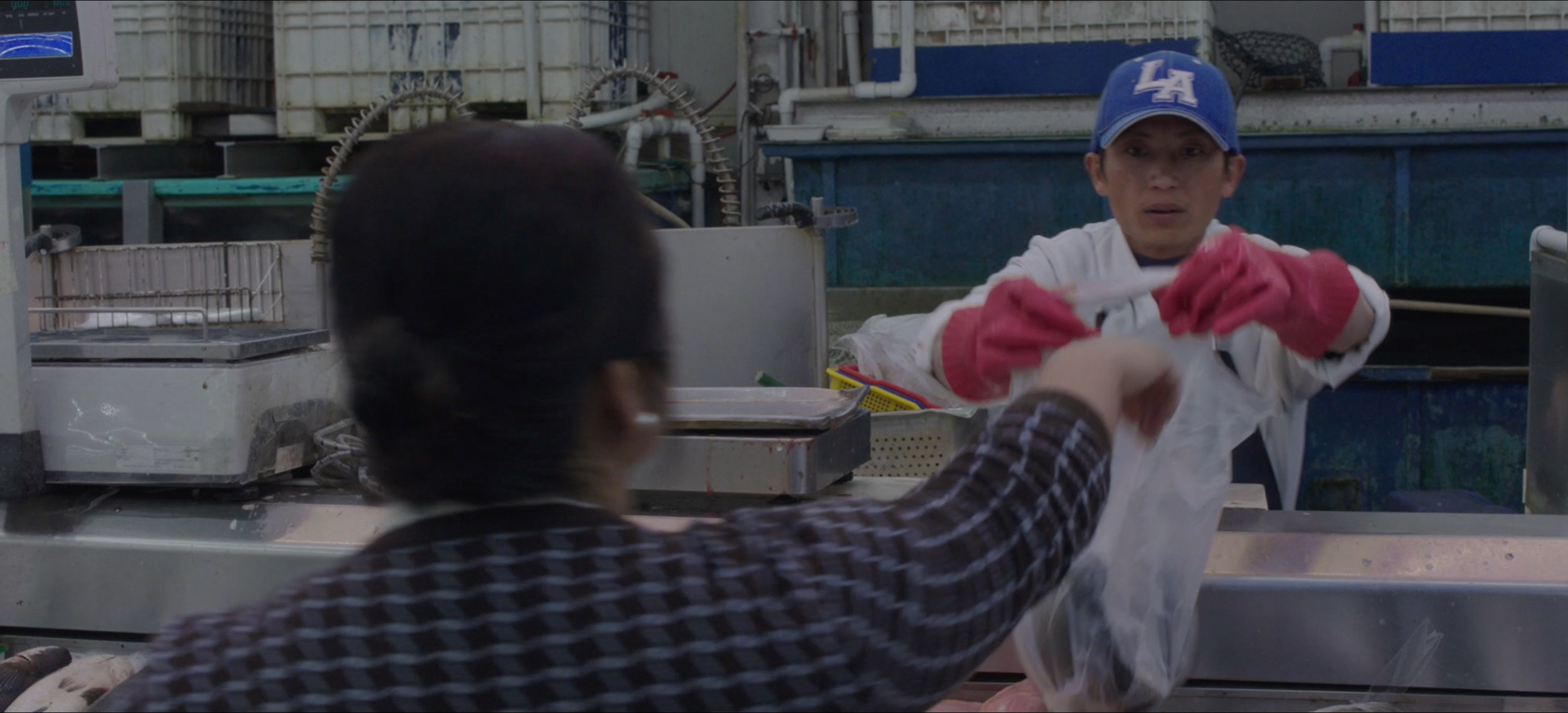
Hieu
Hieu, is an award-winning film of Richard Van that was screened at Cannes Film Festival. Primarily the title refers to the name of the film’s main character, but it also has some other meanings. “Hieu” could mean “filial piety”, which is sort of ironic given the subject matter, as the relationships between all the members of the family in the film are really far from filial. Let’s take the main character, the father Hieu, who remembers his relatives only when he is in need of money; or his son who does not seems to care about his parents at all. The director says: “That's fun to think about another meanings of Hieu but at the time I just chose it because I liked the name.” The original working title for the film was Work and Family.
Richard’s own family had a tough time right before he began working on Hieu. He remembers: “The 2016 election was happening and my father who supported Hillary Clinton lost many friends who supported Donald Trump. The Vietnamese community is largely conservative, so Republicans because of their staunch anti-communism during the Cold War mostly aren’t supported within our community.” All the anxiety Richard’s father felt during that time was causing problems for his mental health. That was the starting point of the film. However, it became something completely different than what the director initially wrote. The story was transformed and now tells about a Vietnamese-American family (mother Ngoc and her son) who have to deal with the sudden visit of father Hieu who yet again failed to earn some money.
The main actors in Hieu have already acted in other films. Richard says: “I don't think any of them are full-time actors. The smaller roles were occupied by non-actors. The ‘esthetician’ was played by my associate producer's mom.” There wasn't a large pool of actors to choose from. Only two men auditioned for the role of Hieu, about two or three women for the role of Ngoc.
The American filmmaker usually chooses actors that are most like their characters in personality rather than how good they are at "performing" during audition. Richard is usually confident that he will be able to work with anyone given a few rehearsals—as long as they are committed and willing to put in a lot of work.
Since the release of Hieu, people (not only Vietnamese) keep telling Richard that they have experienced similar stories. The director remembers a woman who auditioned for one of the roles and she said that the story resembled her own life. She and her husband were divorced, but he kept coming over and bothering her. Van says: “I had another Vietnamese person who came up to me and said that Hieu was just like his own father who left the family. In fact, he wished his father were more like Hieu because, at least, Hieu wanted to return home.”
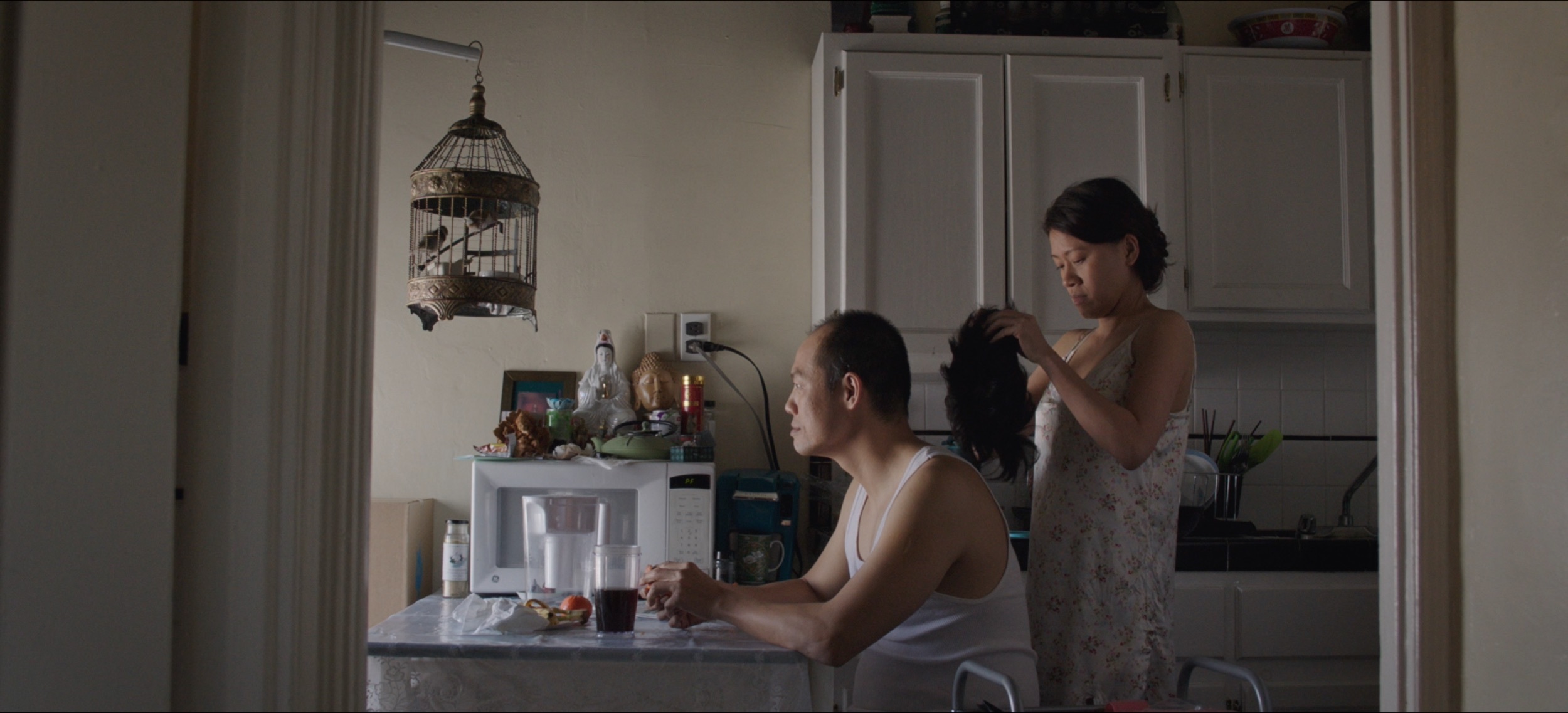
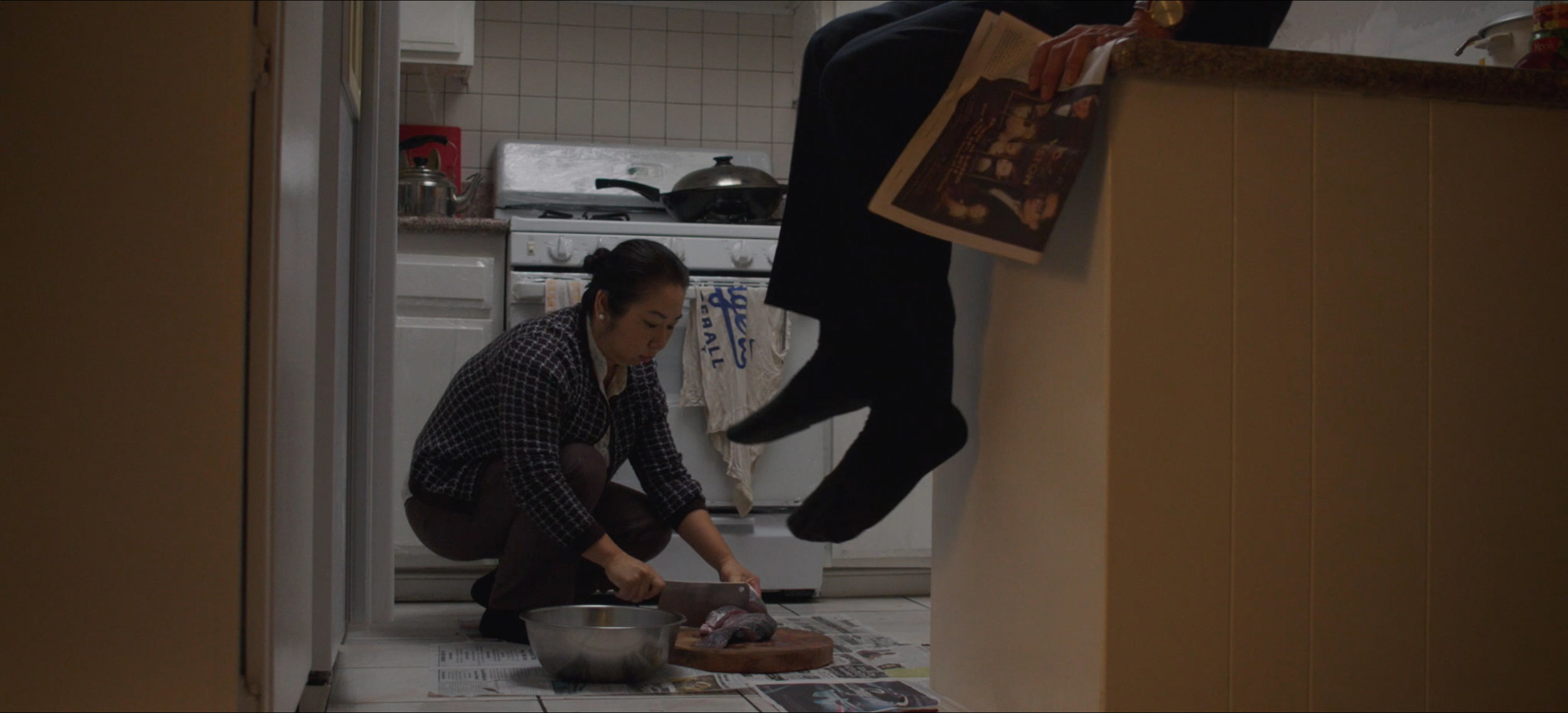
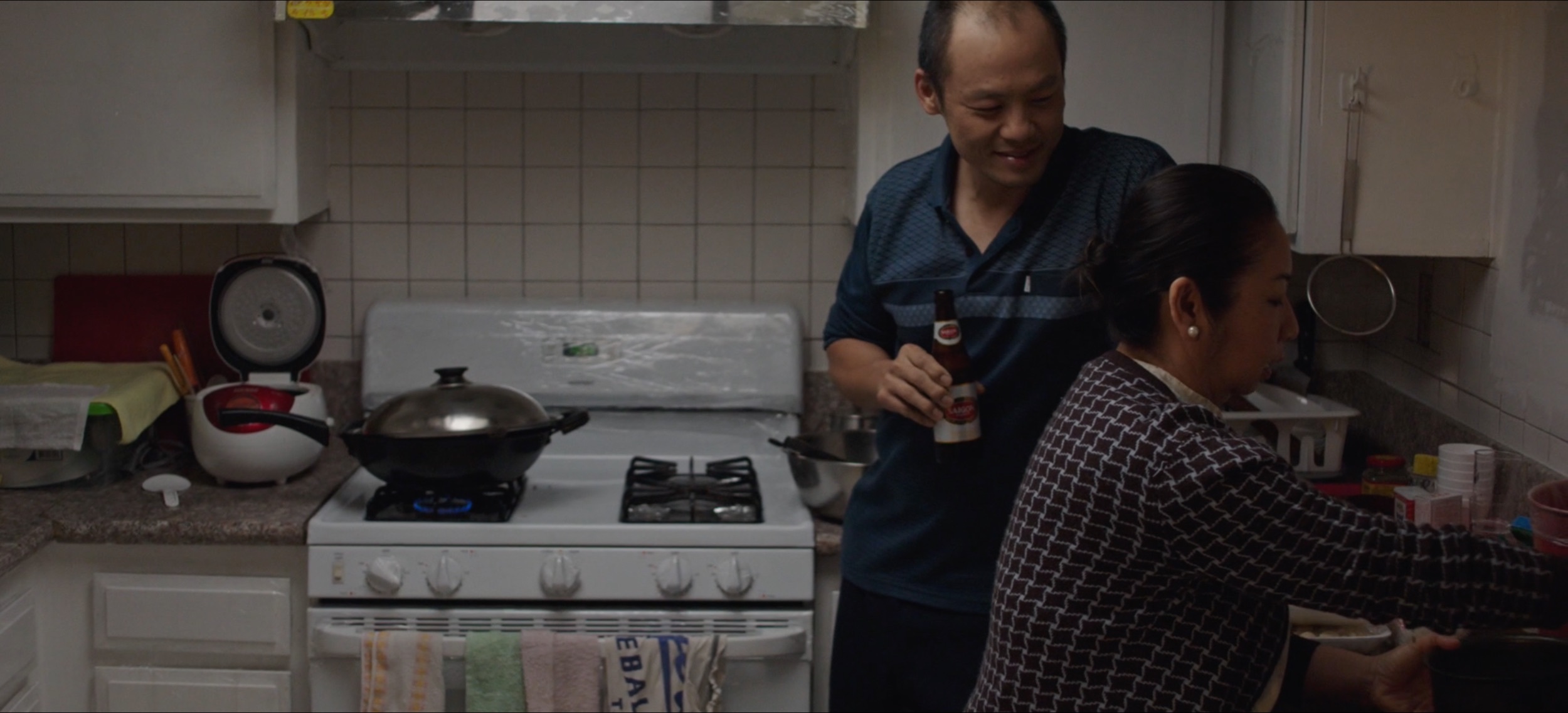
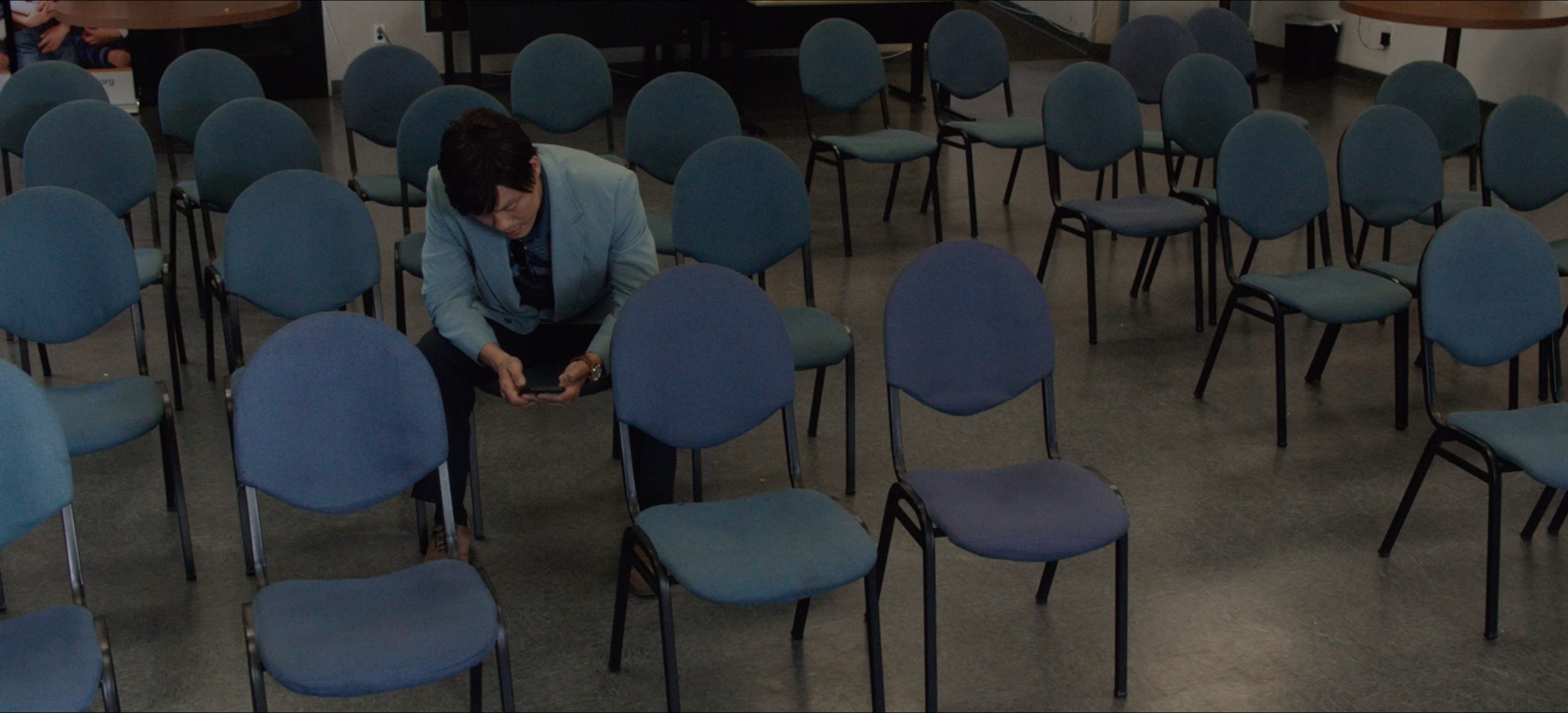
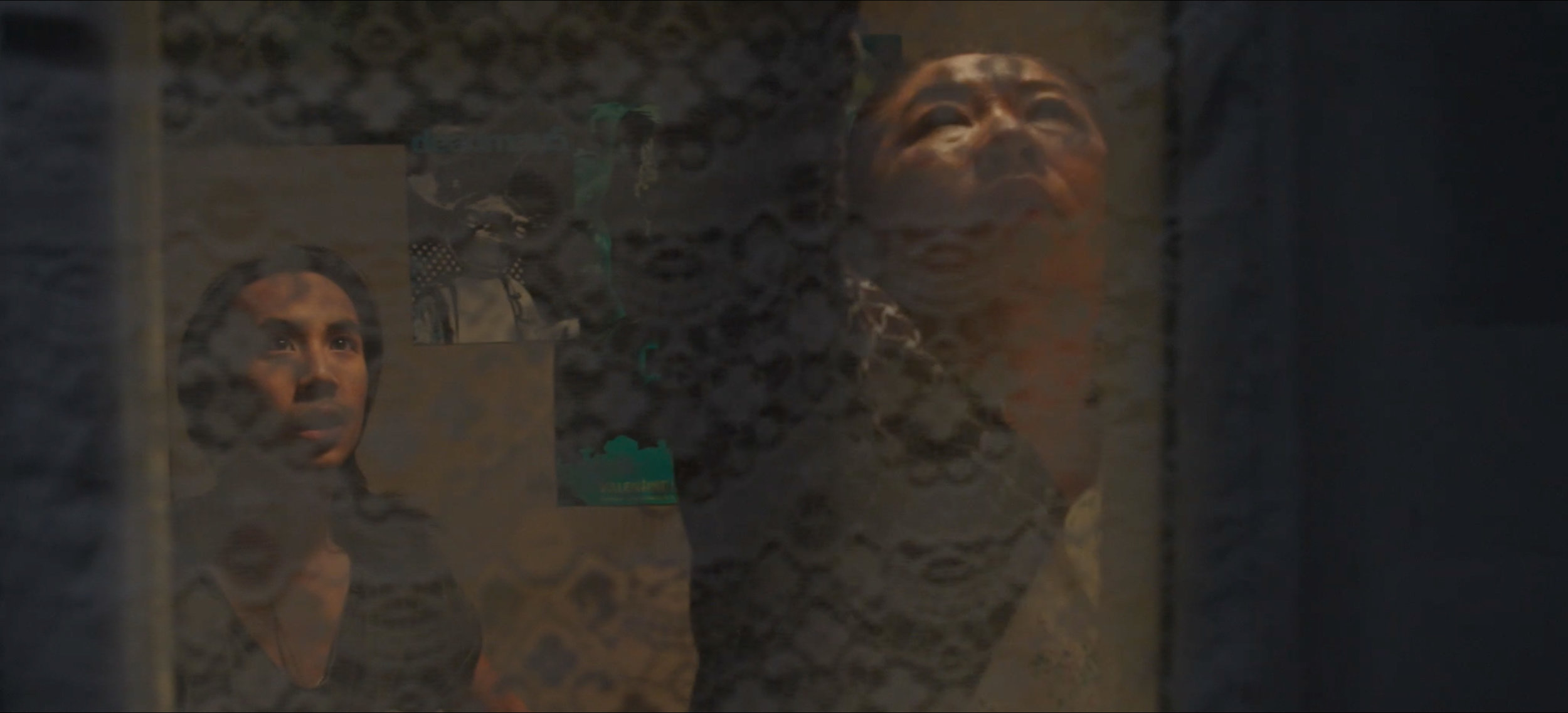
Festival experience
Visiting Cannes Film Festival 2019 was a wonderful experience for Richard. He met so many amazing and, despite their young age, talented filmmakers. He says: “Honestly, I had no idea I was going to win the Second Prize of the 22nd Cinefondation Selection because all the films were so magnificent. I would just sit down and be blown away by everyone's films.” There was one really meaningful moment which left a significant print on Richard. During the festival, Claire Denis (the Head of the Cinefondation Jury) stopped Richard’s crew in order to tell the lead actress of Hieu, Jaimie Tran (Ngoc), that she was amazing. Being a huge fan of Denis' work, the filmmaker was speechless.
According to the director the second and third most memorable festival experiences were Slamdance Film Festival and Guanajuato Film Festival. The American director says: “These two festivals just have such wonderful programmers and communities. They are also very kind to short filmmakers, which is not as common as one would hope.”
Idols
Richard has always been drawn to sensitive filmmakers that ride the line between realism and formalism. Yasujirō Ozu, Apichatpong Weerasethakul, and Lynne Ramsay are some of the big names on his list. However, the filmmaker that is closest to his heart nowadays is Edward Yang. The families in his stories are a lot like Richard’s. The director says: “There is always a bit of everything for everyone in his films: humor, seriousness, formalism, realism, subtlety, melodrama, and just a gripping humanism that tugs at your heart strings. I'm always laughing, crying, in awe of each one of his films.”
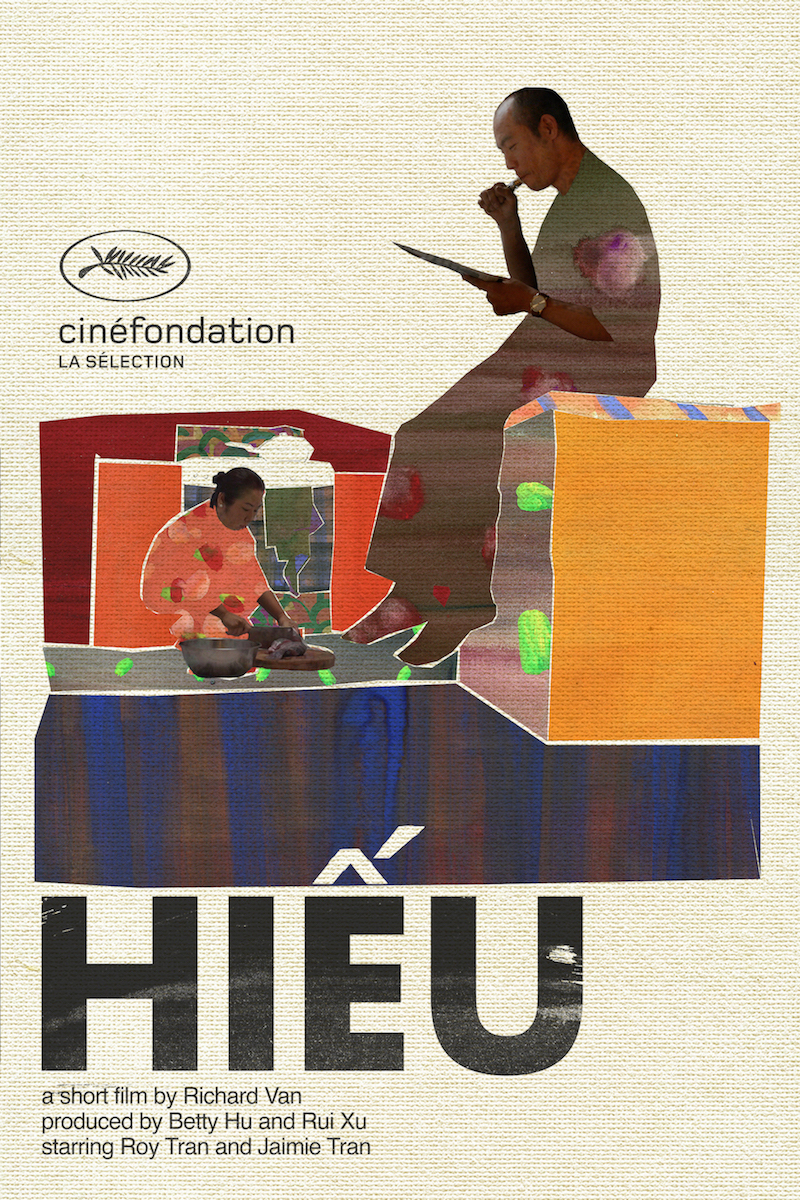
Currently Richard Van is working on a feature-length script. It will be a Vietnamese-American story. He does not want to give away too much at this point. Other than that, he plans on teaching filmmaking for a few months in San Francisco, then moving down to LA where he will work more towards his directing career.
In order to find more information about Richard Van and his works please visit his website by clicking here.
(c) All visual material is used with the filmmaker's permission.